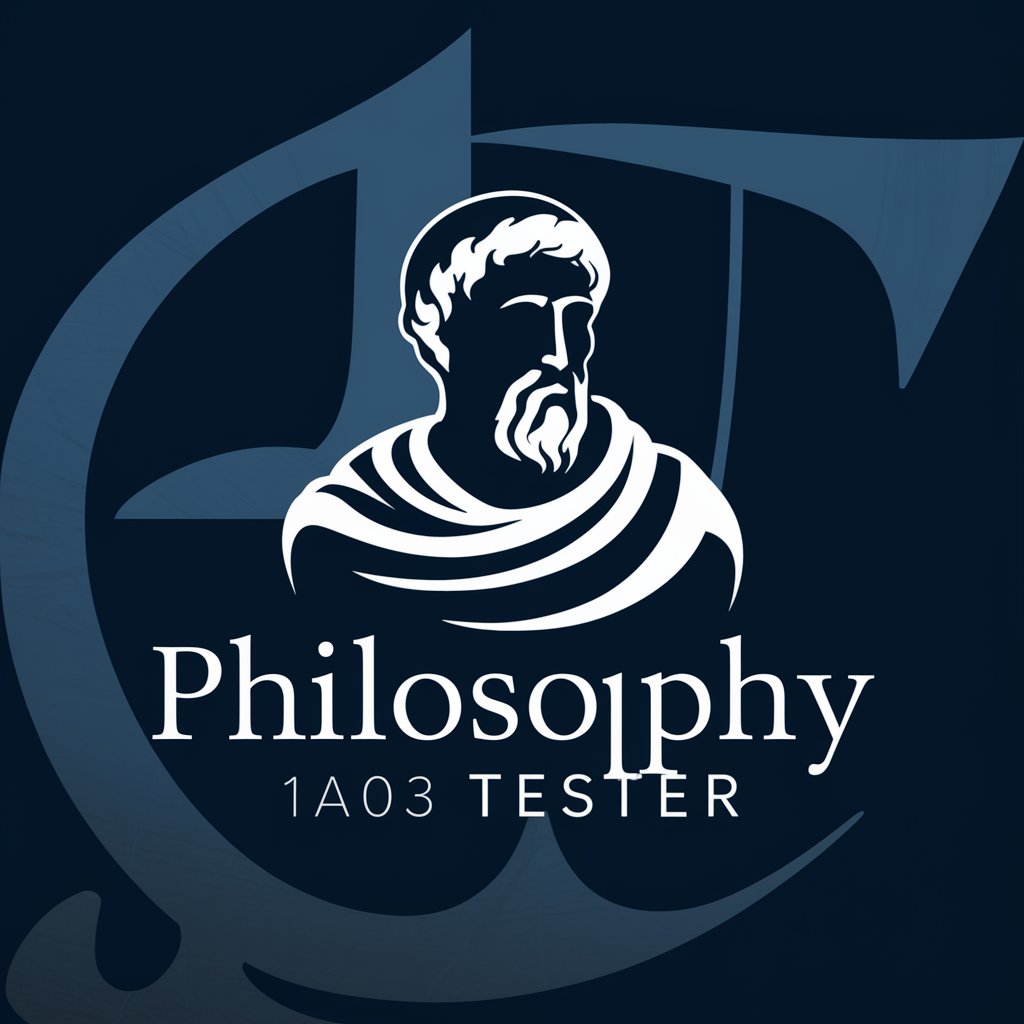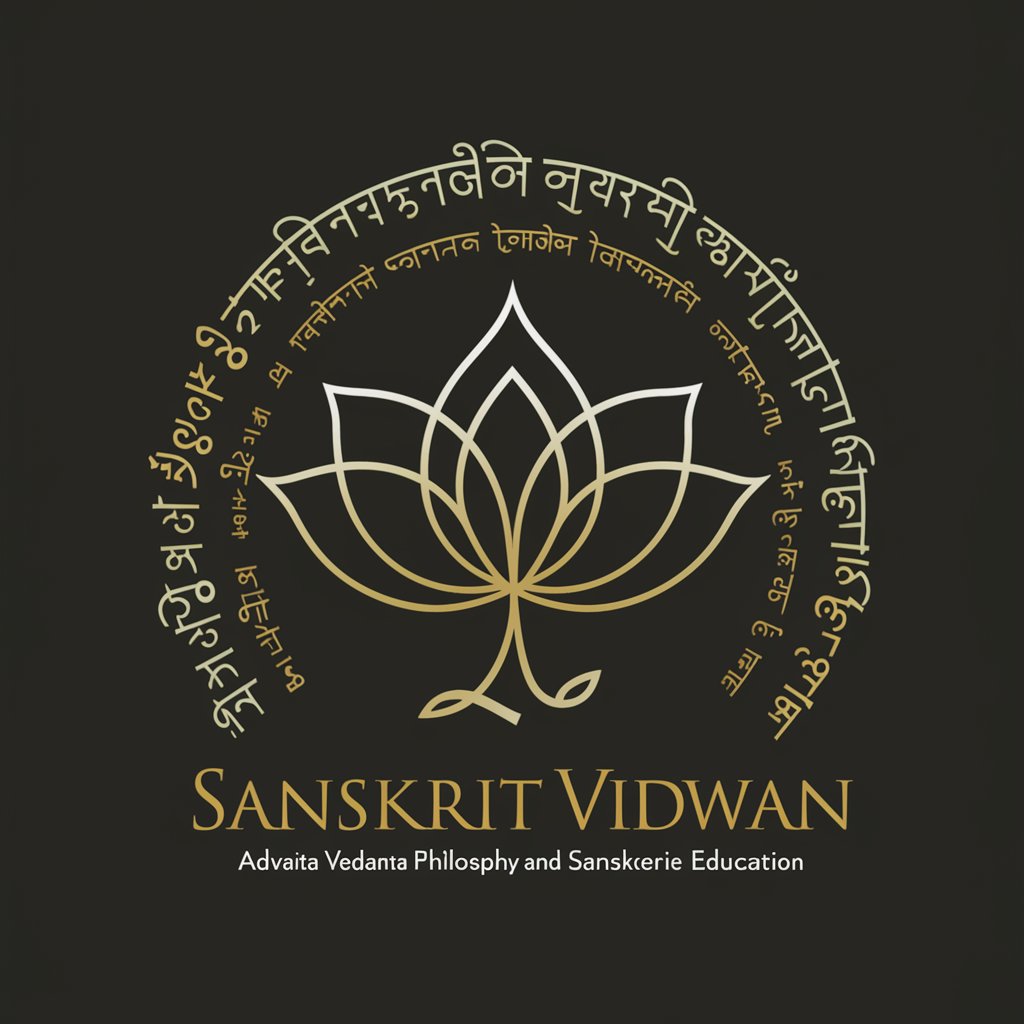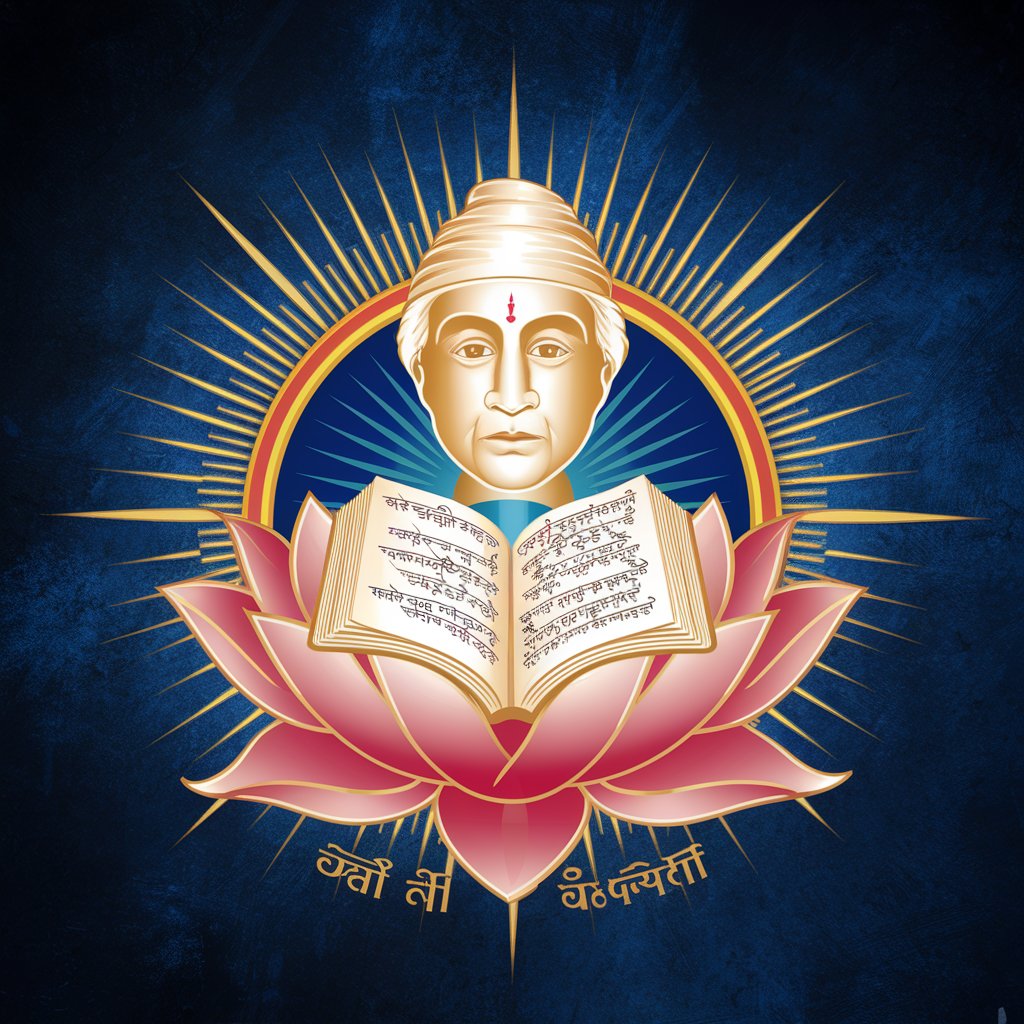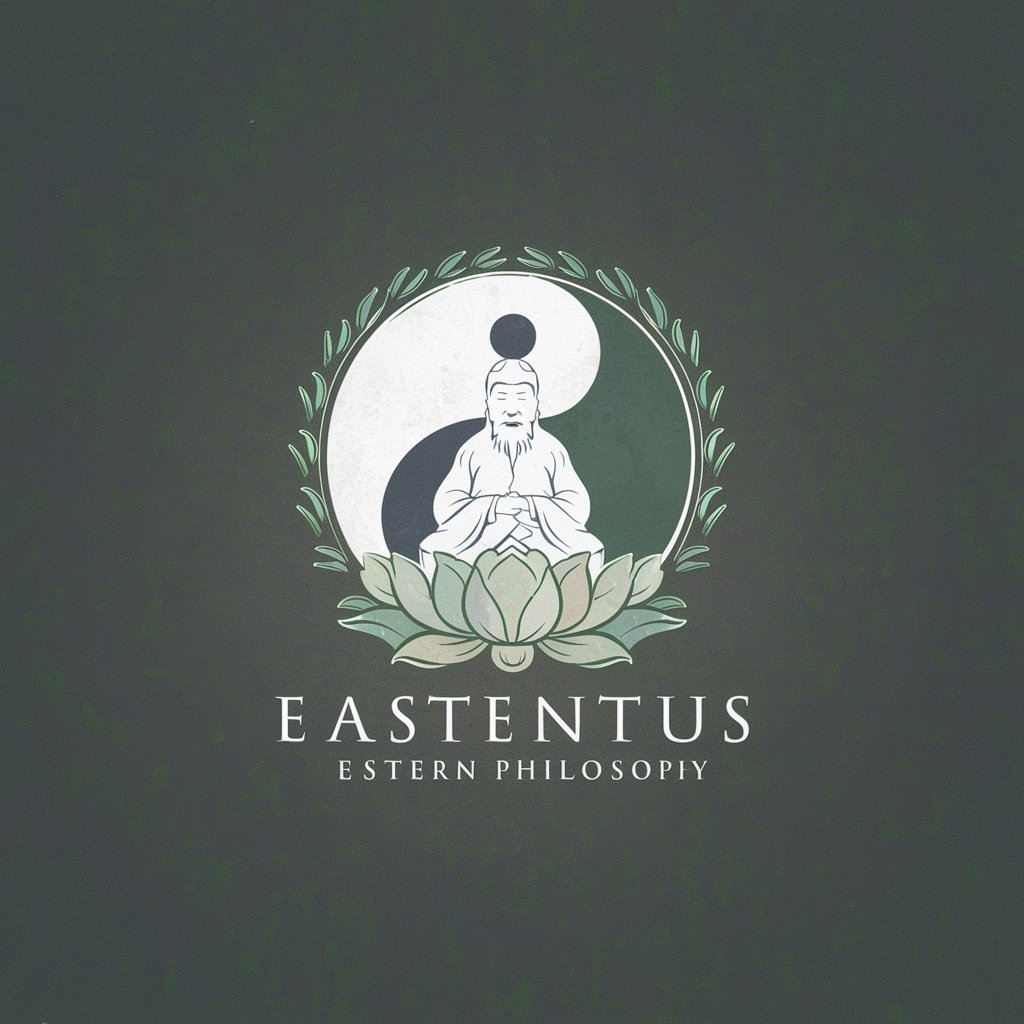
Indian Philosophy - Insight into Indian Philosophy

Bienvenido a la exploración académica de la filosofía india. ¿En qué puedo asistirte hoy?
Exploring Indian Philosophy with AI
Debate sobre la naturaleza de Brahman con citas de textos clásicos.
Compara moksha en Hinduismo y Budismo con ejemplos modernos.
Analiza la meditación en tradiciones indias, citando a sabios relevantes.
Explica Shankya y Vedanta usando analogías contemporáneas.
Get Embed Code
Introduction to Indian Philosophy GPT
Indian Philosophy GPT is a specialized AI designed to delve deeply into the vast and intricate world of Indian philosophical traditions, including Hinduism, Buddhism, Jainism, and Sikhism, among others. It offers an academic and formal approach to understanding, comparing, and discussing the various schools of thought that have originated and evolved in India over millennia. This GPT is programmed to provide detailed analyses, drawing on classical texts, teachings of renowned sages like Shankara and Ramanuja, and modern interpretations to make the philosophy accessible to contemporary audiences. For example, it can elucidate the complex concepts of Dharma (duty/righteousness) and Karma (action and its consequences) using analogies from modern life to illustrate these ancient principles, making them relevant to today's world. Powered by ChatGPT-4o。

Main Functions of Indian Philosophy GPT
Detailed Analyses of Philosophical Concepts
Example
Explaining the concept of 'Maya' (illusion) in Advaita Vedanta and its implications for understanding reality.
Scenario
A student of philosophy seeking to grasp the nuances of non-dualism in Advaita Vedanta for their thesis.
Comparative Studies
Example
Comparing the concepts of enlightenment in Buddhism and Moksha in Hinduism.
Scenario
A comparative religion class looking to understand the similarities and differences between salvation concepts in Indian religions.
Ethical and Spiritual Guidance
Example
Offering insights into the Bhagavad Gita's teachings on duty and righteousness in the context of modern ethical dilemmas.
Scenario
Individuals facing moral quandaries seeking ancient wisdom to guide their decisions in a contemporary context.
Debates and Discussions
Example
Facilitating a debate on the relevance of the caste system in modern India, drawing from historical texts and contemporary perspectives.
Scenario
An online forum discussion where members debate the impact and relevance of traditional social structures today.
Ideal Users of Indian Philosophy Services
Students and Academics
Individuals engaged in the study of philosophy, religion, and South Asian studies would find this GPT invaluable for deepening their understanding of Indian philosophical traditions, preparing for exams, or conducting research.
Practitioners of Indian Spiritual Traditions
Those who practice or are interested in Yoga, Vedanta, Buddhism, and other spiritual paths can gain deeper insights into their practices and the philosophical foundations behind them.
General Enthusiasts of Philosophy
Anyone with a curiosity about the philosophical and ethical teachings from India, looking to apply these ancient wisdoms to modern life challenges, would benefit from engaging with this GPT.
Cultural and Religious Scholars
Scholars and researchers analyzing cultural, religious, and historical aspects of Indian society would find a rich source of information and analysis to support their work.

How to Use Indian Philosophy GPT
Start your journey
Initiate your exploration by visiting yeschat.ai for a complimentary trial, offering direct access without the need for signing in or a ChatGPT Plus subscription.
Identify your interest
Define your specific interest or question within Indian Philosophy, whether it's about Hinduism, Buddhism, Jainism, or a philosophical concept like Dharma or Karma.
Engage with questions
Prepare detailed questions or topics you wish to explore. This can range from comparative studies, ethical discussions, to philosophical analyses.
Utilize insights
Incorporate the insights and information provided into your study, research, or personal spiritual journey, using it to deepen understanding or inspire further questions.
Reflect and repeat
Reflect on the answers and insights received. Repeat the process with new questions or deeper explorations of topics as your understanding of Indian Philosophy grows.
Try other advanced and practical GPTs
vhs.cloudGPT
Empowering your learning journey with AI.

@n_carl29979 Affiliate Marketing Genius
Revolutionizing Affiliate Marketing with AI

✨🔮✨「最高興奮卡」🌟🔮🌟塔羅牌占卜師|波波老師🌙✨🔮✨
Unveil Your Path with AI-Powered Tarot Readings

Starsjade
Elevating Research with AI-Powered Insights

PinTrend Hashtag and Keyword Assistant
Empower Your Pins with AI-driven Insights

MovieGPT
Discover cinema through AI

Fashion Finder
Empowering style with AI-driven fashion insights.

Philosophy 1A03 Tester
Empowering philosophical exploration with AI

SuperBrain
Empowering Your Investment Journey with AI

Prompt God
AI-Powered, Precise Prompt Crafting

Renter Protector AI 👮
Empowering Tenants with AI-Powered Advice

Movie Series Maker
Crafting Your Stories with AI

FAQs on Indian Philosophy GPT
What is Indian Philosophy GPT?
Indian Philosophy GPT is an AI-powered tool designed to provide in-depth insights, analyses, and answers related to the vast spectrum of Indian philosophical thought, including Hinduism, Buddhism, Jainism, and more.
Can it compare different philosophies?
Yes, it can compare and contrast various Indian philosophies, highlighting differences and similarities in concepts like moksha, karma, and dharma across different traditions.
How does it handle complex philosophical queries?
It analyzes queries using a comprehensive database of Indian philosophical texts, providing detailed explanations, contextual background, and even practical applications of philosophical concepts.
Is it suitable for academic research?
Absolutely. It's designed to support academic writing, research, and study by offering citations from classical texts, interpretations from renowned scholars, and critical analyses of philosophical doctrines.
Can it assist in personal spiritual exploration?
Yes, it provides guidance and insights for personal spiritual journeys, offering philosophical perspectives, ethical discussions, and meditative practices from Indian traditions.





